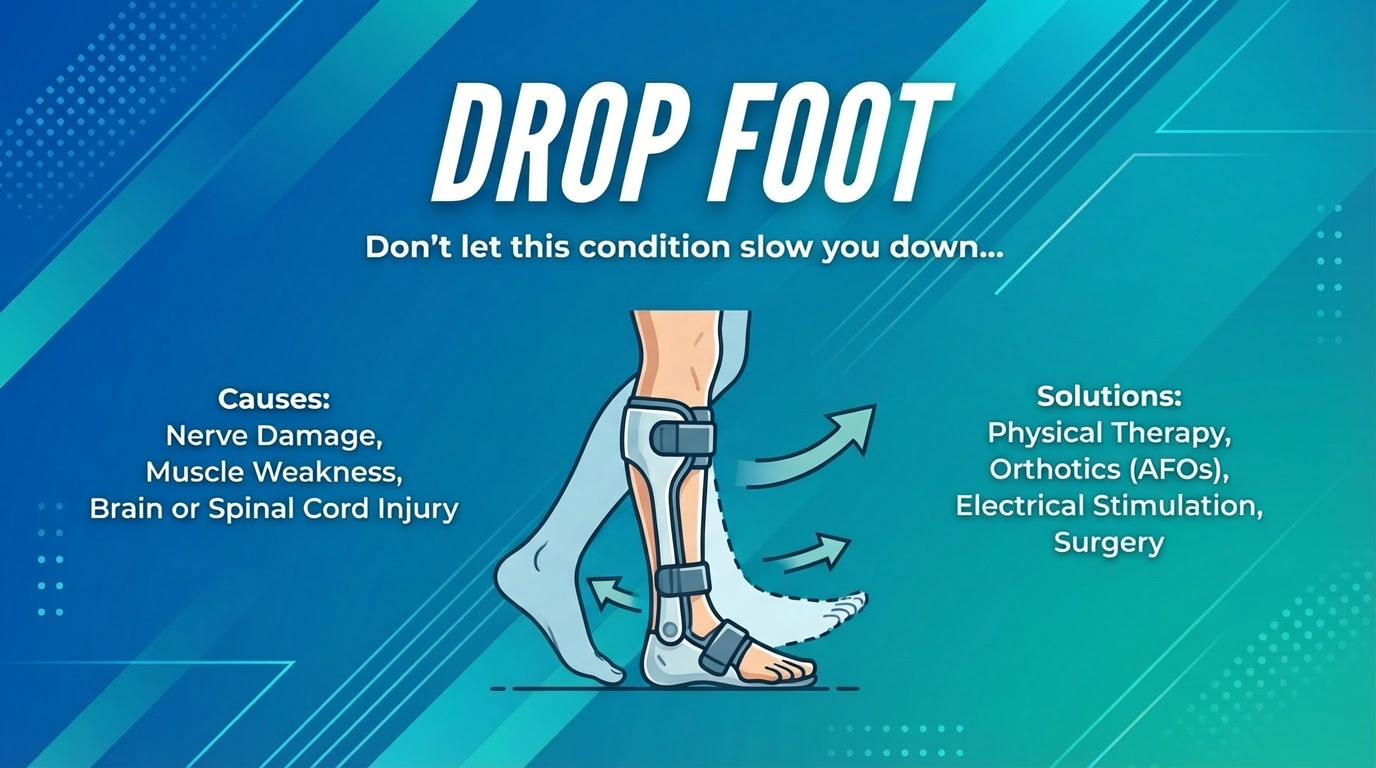Throughout your body, some nerves are responsible for collecting sensory information, while others are responsible for initiating and controlling physical movement. When nerve problems develop, such as damage to the peroneal nerve, you may need treatment at Achilles Foot & Ankle Center.
This condition is considered a dysfunction of a single nerve (mononeuropathy). That simply means there is only one area of the body being affected. However, certain body-wide conditions can lead to mononeuropathy.
The branch of a nerve cell is known as an axon, and this is covered by the myelin sheath. Typically, an issue develops when the peroneal nerve’s myelin sheath has been damaged, but the axon can also be injured (which leads to severe symptoms).

Some of the more common causes of damage to the peroneal nerve include:
Some of the nerve dysfunction symptoms to be aware of include:
This condition typically causes the toes of one foot to drag along the ground when walking. There are, however, instances where both feet are affected and display this symptom. To compensate, a patient may lift his or her knee higher so the foot can clear the floor. This creates an abnormal gait, with the affected foot slapping down against the ground with every step. In certain cases, numbness is also experienced along the top of the foot and toes.
The root cause of foot drop is weakness or paralysis of the muscles responsible for lifting the front of the foot. This can happen when an issue affects the muscles themselves directly or the entire nervous system. A number of different conditions can have this effect, including nerve damage.
The problem is most frequently caused by compression on or injury to the peroneal nerve. This nerve runs from the back of the knee and down to the front of the shin. There are several ways the nerve might be damaged, including those listed above.
podiatrist foot
Need a Same Day Appointment? Call 1-804-273-1717
Controlling the symptoms is a big part of treatment for peroneal nerve damage. This can include the use of either over-the-counter or prescription pain relievers to help manage painful symptoms. Some other medications we may recommend or prescribe include carbamazepine, gabapentin, and tricyclic antidepressants.
Physical therapy exercises help patients to maintain muscles strength in the lower limbs. At the same time, the orthopedic devices we can prescribe may lead to improved ability to walk and prevent contractures (shortened or hardened soft tissues leading to rigidity and deformity).
Our main goal for treatment is to correct the source behind the neuropathic condition, thereby improving mobility and patient independence. Depending on the case, we may need to use corticosteroid injections to relieve the pressure and swelling which is constricting a nerve. We may also need to consider using surgery if the disorder does respond to conservative care or go away on its own; it is causing problems with movement; or there is sufficient evidence to indicate the nerve axon is damaged.
Peroneal nerve damage is one of the many conditions we treat for our patients from across the greater Richmond, VA community. We are staffed with skilled, experienced podiatrists committed to continual education and constantly improving their skills to better serve you. Contact Richmond Foot and Ankle Specialists by calling (804) 273-1717 or take a moment and schedule your appointment online today.
+1-804-273-1717

